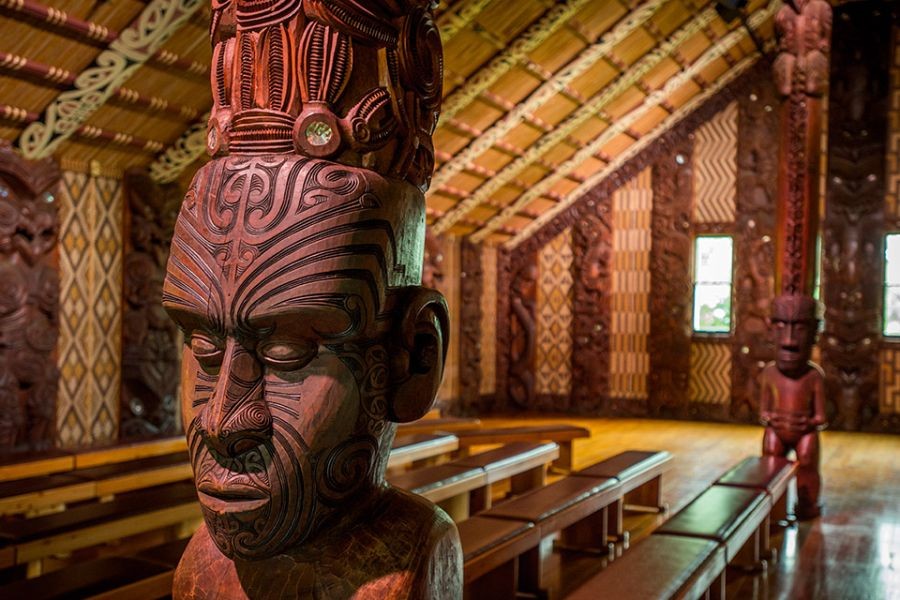New Zealand's indigenous Maori culture is a rich tapestry of traditions, language, and values that has shaped the nation's identity. Yet, despite its significance, Maori culture is often misunderstood in both local and global contexts. This misunderstanding can have profound implications for various sectors, including the financial industry, where cultural awareness can inform better decision-making and engagement strategies. Understanding Maori culture is not just a matter of cultural sensitivity; it is crucial for fostering inclusive economic growth and addressing systemic disparities. Let's delve deeper into the reasons behind these misunderstandings and explore how they impact New Zealand's economy and industries.
Historical Context of Maori Culture in New Zealand
The Maori are the indigenous Polynesian people of New Zealand, and their presence dates back over 1,000 years. Despite being the tangata whenua (people of the land), Maori have faced significant challenges in maintaining their cultural heritage due to colonization and subsequent assimilation policies. These policies have historically marginalized Maori, contributing to widespread cultural misunderstandings.
The Treaty of Waitangi, signed in 1840, was supposed to be a partnership agreement between Maori and the British Crown. However, differing interpretations and breaches of the treaty have led to long-standing grievances. Understanding this historical context is vital for financial advisors and businesses aiming to engage with Maori communities effectively.
Impact on New Zealand's Economy
According to Stats NZ, the Maori economy was valued at NZD 68.7 billion in 2018, and it continues to grow. Maori enterprises are involved in various sectors, including agriculture, fisheries, tourism, and real estate. However, despite their economic contributions, Maori face significant disparities in health, education, and employment. These disparities can be partly attributed to cultural misunderstandings and systemic biases that limit opportunities for Maori development.
Common Misunderstandings About Maori Culture
Myth vs. Reality
- Myth: Maori culture is monolithic.
- Reality: Maori culture is diverse, with numerous iwi (tribes) and hapu (sub-tribes), each with its own unique traditions and dialects.
- Myth: Maori language (Te Reo) is rarely used in modern New Zealand.
- Reality: Te Reo Maori is experiencing a revival, with government initiatives promoting its use in education and media.
- Myth: Maori economic activities are limited to tourism and arts.
- Reality: Maori are involved in a wide range of industries, including agriculture, fishing, and technology.
Case Study: Ngai Tahu - A Success Story
Problem: In the past, Ngai Tahu, one of the largest iwi in New Zealand, struggled with economic challenges due to historical grievances and resource mismanagement.
Action: Ngai Tahu pursued a settlement with the New Zealand government, resulting in a landmark settlement in 1998. They used the settlement funds to invest in property, tourism, and agriculture.
Result: Today, Ngai Tahu is a thriving enterprise with assets worth NZD 1.7 billion. Their success exemplifies how understanding and leveraging Maori culture and values can lead to sustainable economic growth.
Takeaway: Financial advisors can learn from Ngai Tahu's strategic investments and cultural alignment, which have resulted in significant returns and community development.
Pros and Cons of Integrating Maori Cultural Insights into Business
Pros:
- Increased Engagement: Businesses that respect and integrate Maori cultural values often see higher engagement from Maori communities.
- Enhanced Reputation: Demonstrating cultural awareness can enhance a company's reputation and attract diverse talent.
- Market Growth: Understanding Maori consumer behavior can open up new market segments and drive growth.
Cons:
- Complexity: Navigating the complexities of Maori culture requires time and commitment.
- Cultural Sensitivity: There is a risk of misappropriation if cultural elements are used superficially.
- Regulatory Challenges: Understanding and complying with Maori-related regulatory requirements can be challenging.
Future Trends and Predictions
As New Zealand continues to embrace cultural diversity, the role of Maori culture in the economic landscape is poised to grow. According to a report by MBIE, Maori businesses are expected to contribute significantly to New Zealand's export growth over the next decade. Financial advisors and businesses that prioritize cultural understanding and collaboration will be better positioned to capitalize on these opportunities.
Conclusion: Bridging the Gap
Understanding Maori culture is not just a cultural imperative but an economic one. Financial advisors and businesses must strive to bridge the gap between cultural understanding and economic engagement. By doing so, they can contribute to a more inclusive and prosperous New Zealand. What steps will you take to integrate Maori cultural insights into your financial strategies? Share your thoughts below!
People Also Ask (FAQ)
How does Maori culture impact businesses in New Zealand?
Maori culture influences business practices through values like kaitiakitanga (guardianship) and manaakitanga (hospitality), fostering sustainable and community-focused business models.
What are the biggest misconceptions about Maori culture?
A common myth is that Maori culture is static. However, Maori culture is dynamic and continually evolving, integrating modern influences while maintaining traditional values.
Related Search Queries
- Importance of Maori culture in New Zealand
- Maori economic impact
- Understanding Maori customs and traditions
- Maori business success stories
- Cultural sensitivity in New Zealand business































